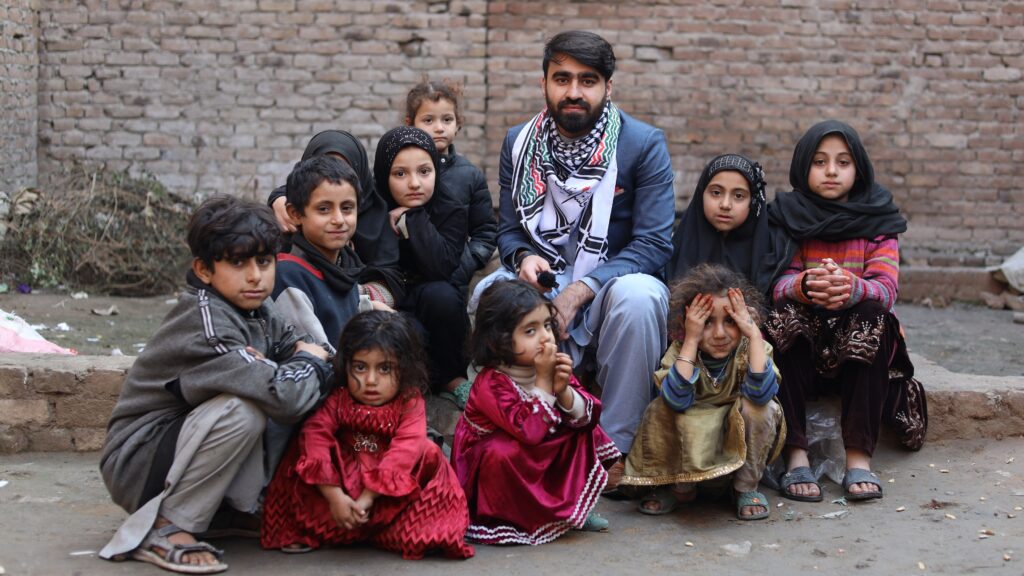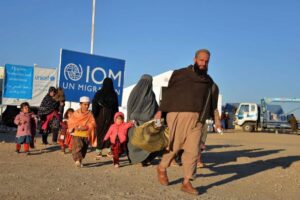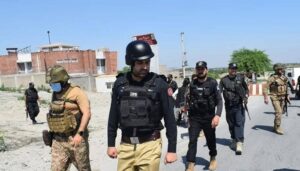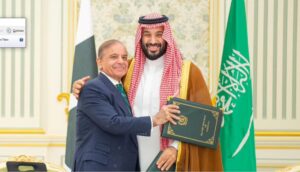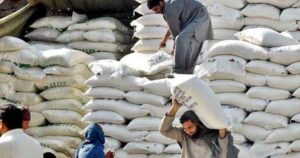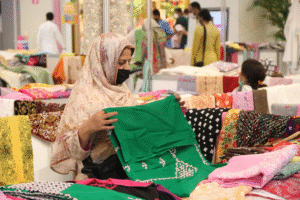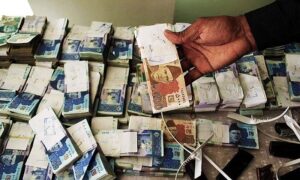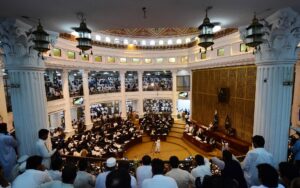PESHAWAR – There was a glow in the boy’s eyes — not of comfort, but of defiance. He sat perched on a small stool along the bustling footpath of Peshawar’s Qissa Khwani Bazaar, clutching a pack of chips, dust layered into the folds of his tiny fingers.
His face, small and beautiful, carried the softness of childhood but not its ease. His smile — wide, pure, impossibly charismatic — held the kind of innocence that refuses to die, even in deprivation.
Mehmood Khan, a self-taught videographer known on Instagram for street video reels, stopped mid-step. He took out his phone and hit record. That short reel — barely 30 seconds long — captured a moment too intimate for words. When he posted it later that day, he added a quiet caption: “Poor with money, but rich with heart.”
The reel went viral overnight.
Viral Fame, But Quiet Action
What the world saw was a smile. What Mehmood saw was a child.
Even before the likes and comments began pouring in, Mehmood had already taken Shehzad’s hand and walked him into Peshawar Model School. He paid the admission fee from his own pocket. “The internet may have loved his face,” Mehmood says, “but I couldn’t wait for love. He needed school now.”
Offers followed — schools wanting to admit the boy, donors from Karachi to Canada reaching out, journalists calling for interviews. But by then, the boy was already in uniform.
Forty Children, One Mission
Shehzad was only the beginning. In the months that followed, Mehmood enrolled 40 more children into schools across Peshawar — some into modest private institutions, others into public schools made bearable by his continued support. “It’s not enough to send a child to school,” he says. “You have to make sure they stay there.”
He visits regularly, tracks attendance, pays fees, and even buys books and uniforms when needed. “Some of these children were picking garbage last year,” he says. “Now they’re learning English tenses.”
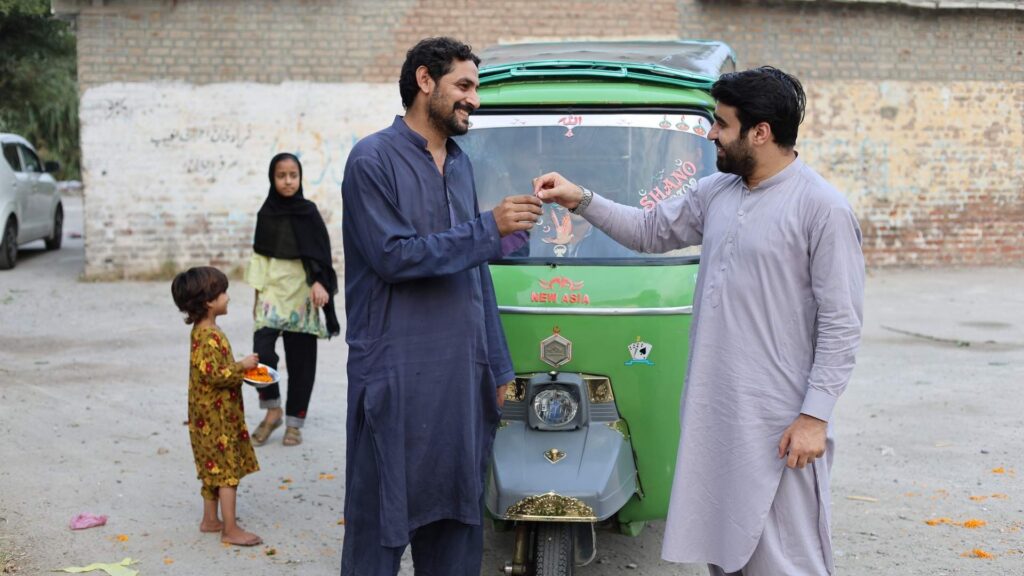
From Reels to Real Aid
But Mehmood’s work doesn’t end with education. He now uses his Instagram following — over 335, 000 strong — to quietly raise funds for causes most donors never see.
In Peshawar’s water-scarce fringe colonies, he has installed 15 water pumps. “You can’t talk about schooling when a family walks miles for water,” he says.
In households run by widows or elder sisters, he has delivered 18 sewing machines. These are not handouts — they are invitations to dignity. “One widow stitched uniforms for the very school her daughter attends now,” Mehmood shares, eyes lighting up.
He’s also facilitated private hospital treatment for 20 patients, including two children with cancer. One child, 8-year-old Abdul, now goes to school after successful chemotherapy. “Treatment wasn’t enough,” Mehmood says. “Hope needed to follow.”
Investing in Breadwinners, Not Just Books
Mehmood has helped 25 unemployed individuals — often single parents — launch small income-generating setups: fruit carts, buffalo milk sales, general stores, and even a small secondhand clothes stall near Board Bazaar. “Every child I send to school has someone behind them trying to make ends meet,” he says. “So I support them too.”
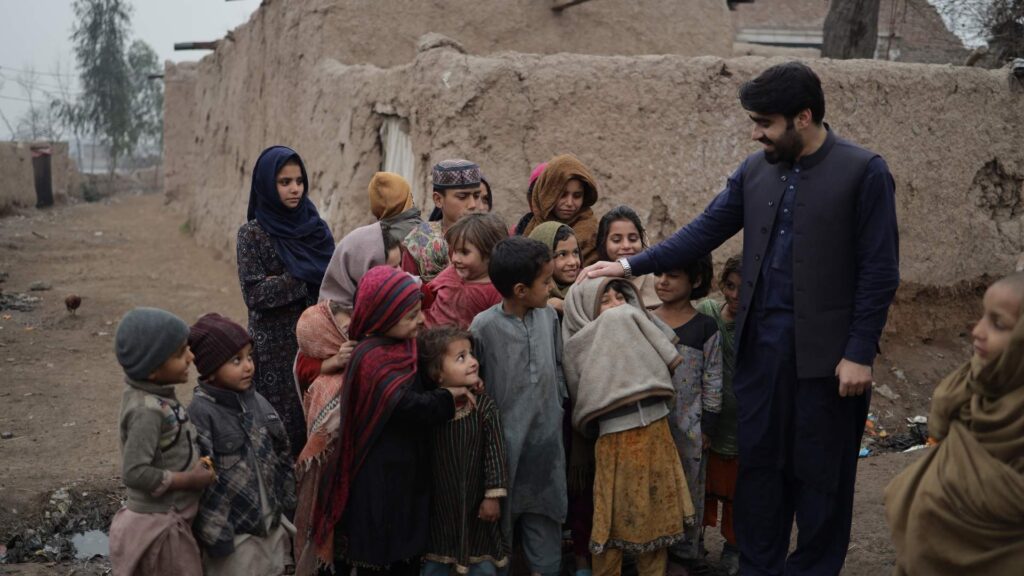
In eight cases, he’s gone further — helping construct single-room homes for families that had none. “These aren’t four-walled dreams,” he says. “They’re survival.”
Last Eid, Mehmood arranged qurbani for families who had never been able to afford it. “Children shouldn’t grow up watching others celebrate,” he says. Goats were quietly delivered in the dead of night to protect dignity. Eid clothes were bought for orphans and wrapped with handwritten cards that read, ‘You are not alone.’
He never films these moments. “Poverty should not be content,” he says.
Everything Mehmood does flows through his phone. He has no office, no registered nonprofit, no staff. He works solo, verifying cases personally, often traveling to far-off colonies on his motorbike after finishing freelance photography and videography gigs. His day begins with prayer and ends with checking school reports, donation messages, and new appeals.
He posts reels, not appeals. “A smile travels faster than a request,” he says.
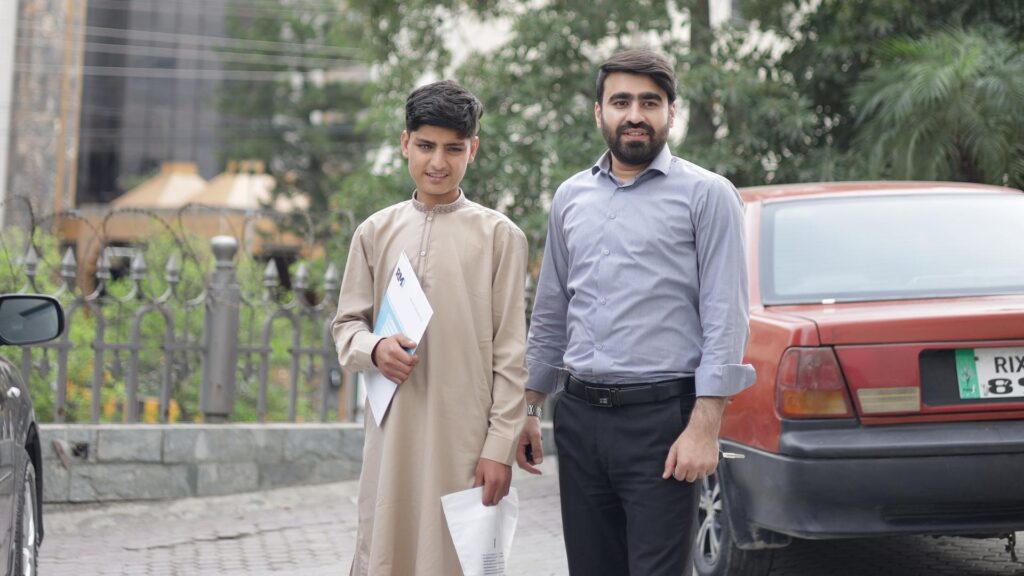
The donations come not from celebrities, but working-class Pakistanis — students, housewives, overseas workers. “They give 200 or 500 rupees, and I stretch it as far as I can.”
Mehmood didn’t plan this. “I picked up a camera because I liked faces,” he says. He started with portraits — shopkeepers, elderly men on benches, children with kites. But one day, he realized: “I was documenting suffering while standing outside it.”
He stepped in. First with money. Then with time. Then with everything.
The Boy with The Smile — Now Learning Math
Shehzad, the boy with the Diana-like smile, now wears a blue-and-white school uniform. He knows his alphabet, his times tables, and recently stood first in a spelling test. When asked what he wants to become, he says “doctor,” then giggles. Mehmood smiles. “He can become anything now,” he says. “He already made the world stop and look.”

